Related Research Articles

Galusha Aaron Grow was an American politician, lawyer, writer and businessman, who served as 24th Speaker of the U.S. House of Representatives from 1861 to 1863. Elected as a Democrat in the 1850 congressional elections, he switched to the newly organized Republican Party in the mid-1850s when the Democratic Party tried to force the extension of slavery into western territories.

William Pennington was an American politician and lawyer. He was the 13th governor of New Jersey from 1837 to 1843. He served one term in the United States House of Representatives, during which he served as Speaker of the House from 1860 to 1861.

These are tables of congressional delegations from Indiana to the United States House of Representatives and the United States Senate.
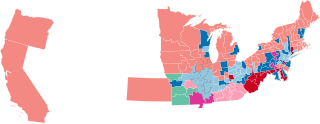
The 1862–63 United States House of Representatives elections were held on various dates in various states between June 2, 1862, and November 3, 1863, during the American Civil War and President Abraham Lincoln's first term. Each state set its own date for its elections to the House of Representatives before the first session of the 38th United States Congress convened on December 7, 1863. The congressional reapportionment based on the 1860 United States census was performed assuming the seceded states were still in the union, increasing the number of congressional districts to 241. West Virginia was given three seats from Virginia after the former broke away from the latter to rejoin the union as a separate state. The seceded states remained unrepresented and left 58 vacancies. Republicans lost 22 seats and the majority, while Democrats gained 28.

The 38th United States Congress was a meeting of the legislative branch of the United States federal government, consisting of the United States Senate and the United States House of Representatives. It met in Washington, D.C., from March 4, 1863, to March 4, 1865, during the last two years of President Abraham Lincoln's first term in office. The apportionment of seats in the House of Representatives was based on the 1860 United States census. The Senate had a Republican majority, and the House of Representatives had a Republican plurality.

The 37th United States Congress was a meeting of the legislative branch of the United States federal government, consisting of the United States Senate and the United States House of Representatives. It met in Washington, D.C., from March 4, 1861, to March 4, 1863, during the first two years of Abraham Lincoln's presidency. The apportionment of seats in the House of Representatives was based on the 1850 United States census.

John Woodland Crisfield was a U.S. Representative from Maryland, representing the sixth district from 1847 to 1849 and the first district from 1861 to 1863. The city of Crisfield, Maryland, is named after him. Crisfield was a strong supporter of the Union during American Civil War, opposing moves towards Maryland's secession. However, Crisfield also supported the institution of slavery and worked to prevent its abolition in Maryland.
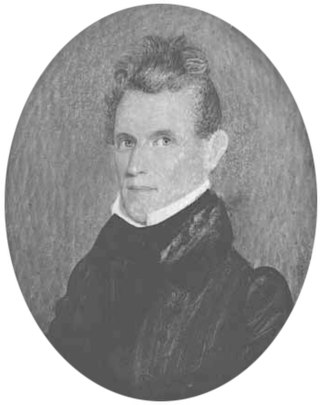
George Washington Barrow was a slave owner, American politician, a member of the United States House of Representatives for Tennessee's 8th congressional district; he later fought against the Union as a member of the Confederate Army and was charged with treason.

William Vandever was a United States representative from Iowa and later from California, and a general in the Union Army during the American Civil War.

Robert Thompson Van Horn was an American lawyer, the owner and publisher of The Kansas City Enterprise, the 6th mayor of Kansas City, Missouri during parts of the Civil War, a member of the Missouri General Assembly, and a representative of Missouri's 5th, 6th, and 8th congressional districts.

Rush Clark was a nineteenth-century politician and lawyer from Iowa, who died on the floor of Congress in 1879.
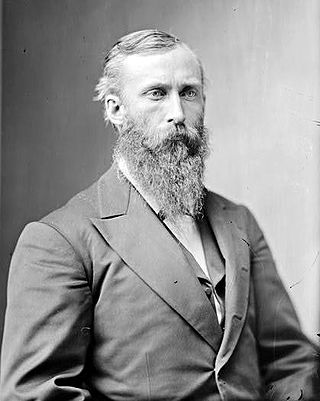
Dudley Chase Haskell was an American merchant, Civil War veteran, and Republican Party politician from the Lawrence, Kansas, area. He first served several terms in the Kansas House of Representatives, where he was elected as Speaker in 1876. That year he was elected to Congress, and served several terms until his death in office in 1883.
Samuel Lewis Casey was a U.S. Representative from Kentucky. Born near Caseyville, Kentucky, Casey attended the country schools. He engaged in mercantile pursuits.

Henry Otis Pratt was an American lawyer, Methodist Episcopal minister, and two-term Republican U.S. representative from Iowa's 4th congressional district.

John Edwards was an American Civil War brigadier general in the Union Army, an American politician and a U.S. Representative from Arkansas. He served in Congress for less than a year before being removed from office following allegations of fraud in his 1870 election. Edwards also served in both houses of the Indiana General Assembly and was a member and speaker of the Iowa House of Representatives.
James Robinson McCormick was a United States Representative from Missouri.
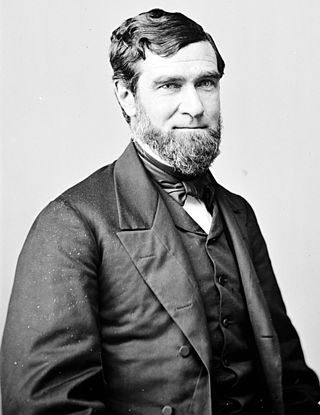
John Guier Scott was a U.S. Representative from Missouri.

Thomas Estes Noell was a U.S. Representative from Missouri, son of John William Noell.

Andrew Scott Sloan was an American lawyer, Republican politician, and Wisconsin pioneer. He served one term in the U.S. House of Representatives and was Wisconsin's 11th Attorney General. He also 14 years as a Wisconsin circuit court judge and was a three-term mayor of Beaver Dam, Wisconsin. His brother, Ithamar Sloan, was also a U.S. congressman.
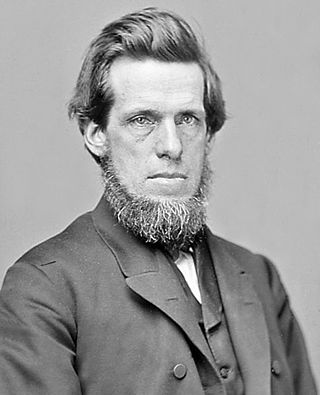
Ezra Wheeler was an American politician, lawyer, and judge who served a single term in the United States House of Representatives, representing the 5th congressional district of Wisconsin from 1863 to 1865 as a Democrat in the 38th United States Congress.
References
- ↑ "Noell, John William: 1816-1863". Biographical Directory of the United States Congress. Retrieved August 17, 2024.
- ↑ Biographical Directory
- ↑ "The Abolishment of Slavery in Missouri". Chicago Daily Tribune. December 20, 1862.
- ↑ "Confiscation". Cleveland Morning Leader. May 6, 1862.
- ↑ "XXXVIIth Congress—First Session". Evansville Daily Journal. December 18, 1862.